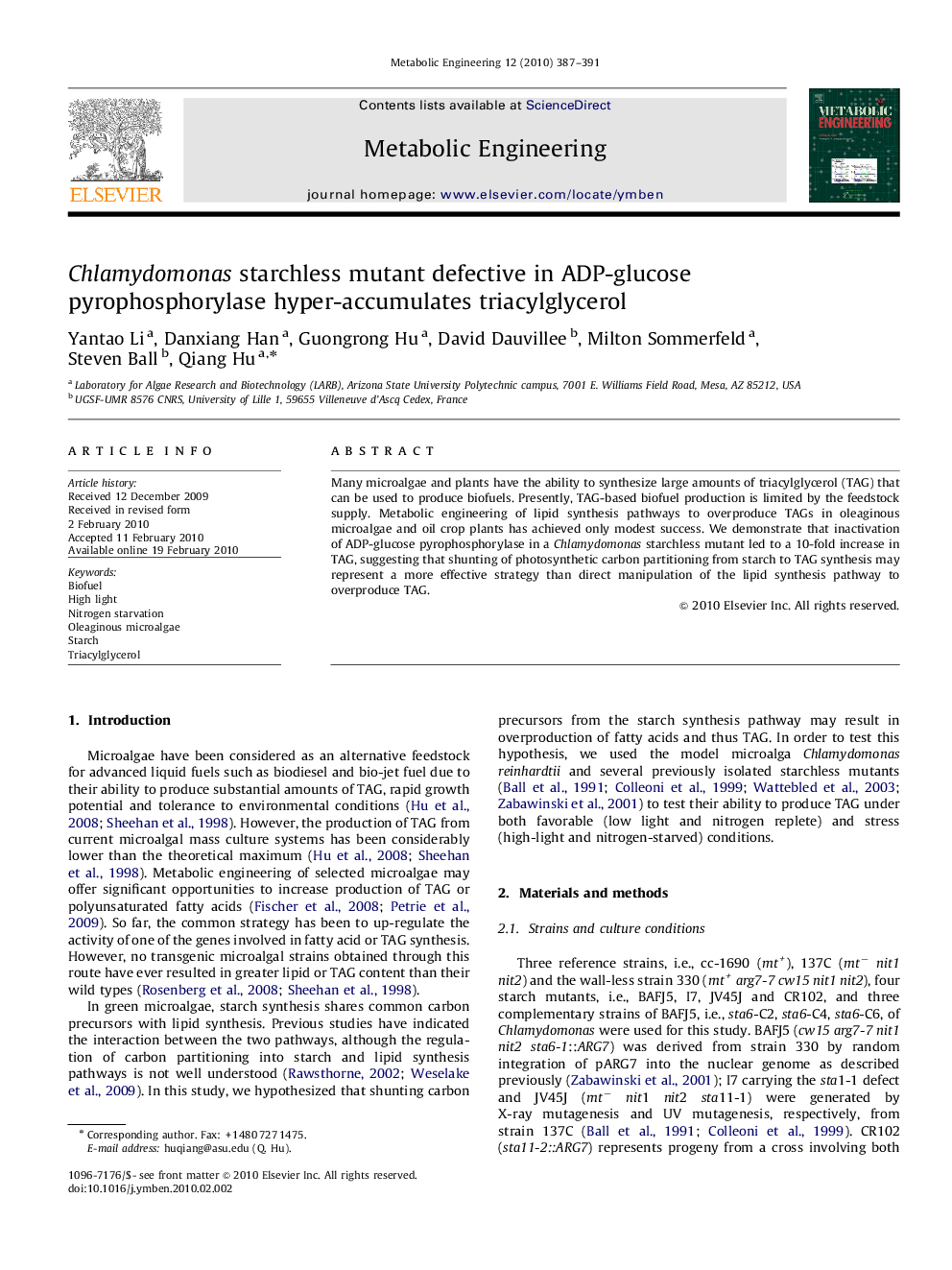| Article ID | Journal | Published Year | Pages | File Type |
|---|---|---|---|---|
| 31729 | Metabolic Engineering | 2010 | 5 Pages |
Abstract
Many microalgae and plants have the ability to synthesize large amounts of triacylglycerol (TAG) that can be used to produce biofuels. Presently, TAG-based biofuel production is limited by the feedstock supply. Metabolic engineering of lipid synthesis pathways to overproduce TAGs in oleaginous microalgae and oil crop plants has achieved only modest success. We demonstrate that inactivation of ADP-glucose pyrophosphorylase in a Chlamydomonas starchless mutant led to a 10-fold increase in TAG, suggesting that shunting of photosynthetic carbon partitioning from starch to TAG synthesis may represent a more effective strategy than direct manipulation of the lipid synthesis pathway to overproduce TAG.
Related Topics
Physical Sciences and Engineering
Chemical Engineering
Bioengineering
Authors
Yantao Li, Danxiang Han, Guongrong Hu, David Dauvillee, Milton Sommerfeld, Steven Ball, Qiang Hu,
